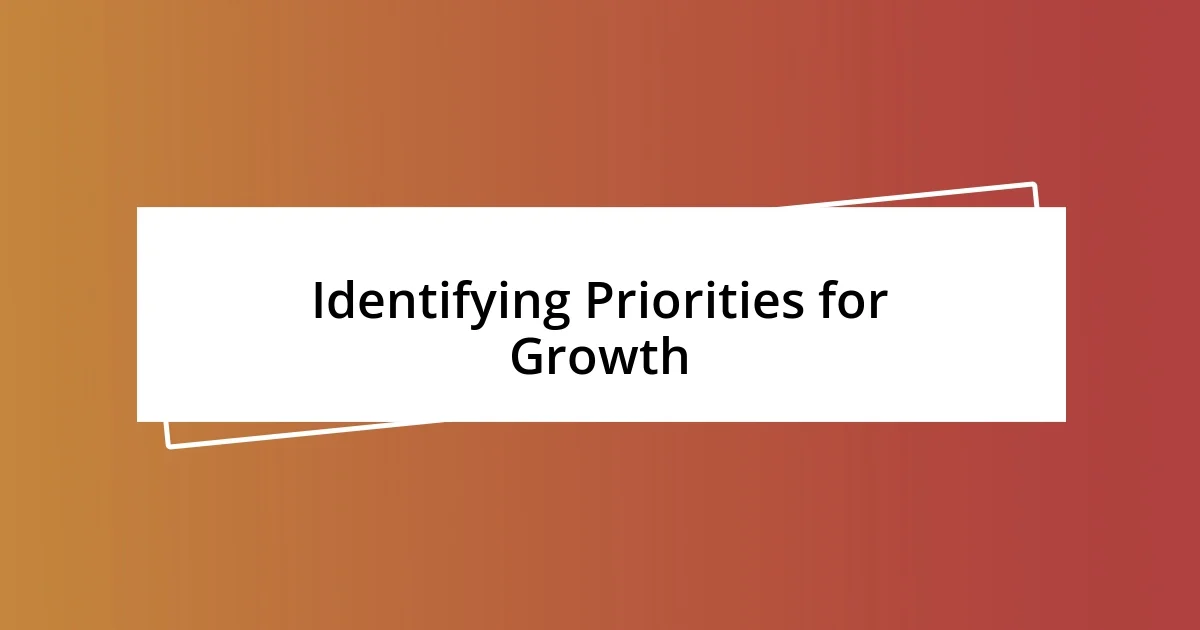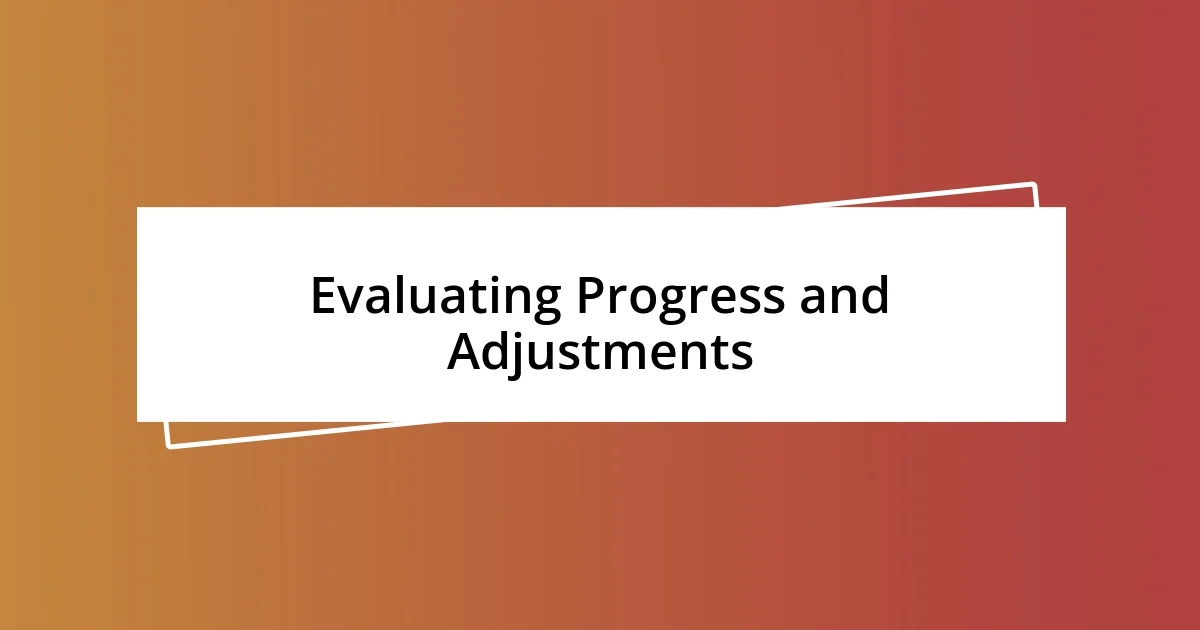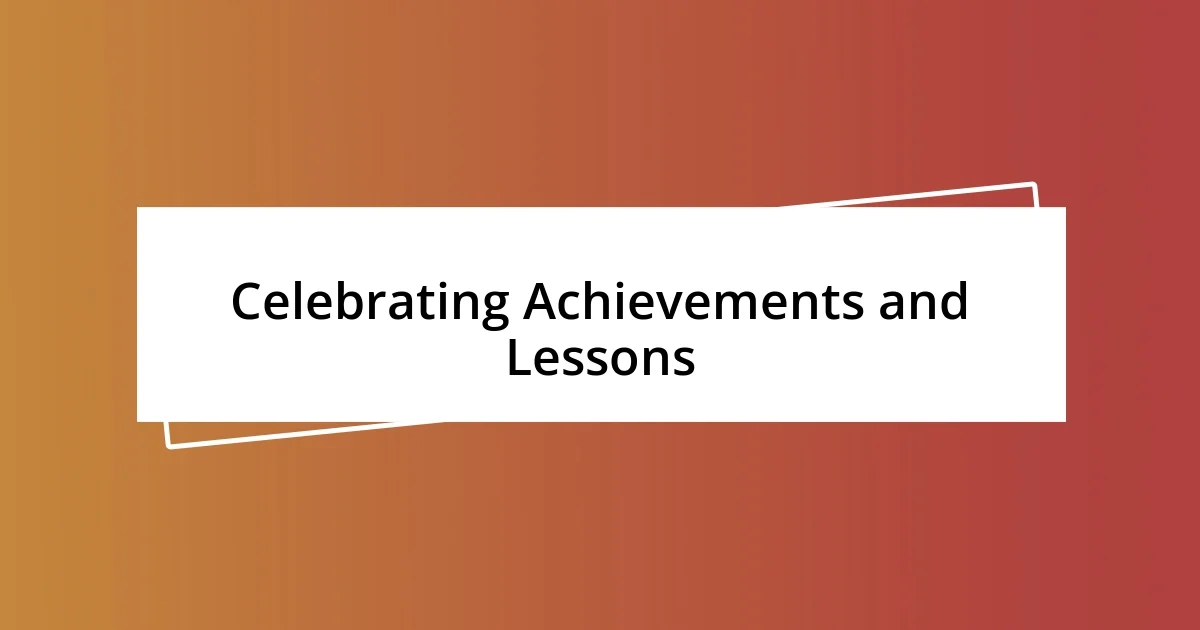Key takeaways:
- Mastering time management reduces stress and opens opportunities for personal growth through better organization and priority setting.
- Implementing SMART goals turns vague aspirations into clear, actionable targets, fostering motivation and progress.
- Regularly evaluating progress and celebrating achievements cultivates resilience and encourages continuous adaptation in personal growth journeys.

Understanding Time Management Benefits
Time management has always felt like a superpower to me. I remember when I first started using a planner; it was like lifting a fog that had settled in my mind. Suddenly, my days felt more structured, and I could actually see my priorities laid out before me. Who wouldn’t want that clarity?
One of the most rewarding aspects of mastering time management is the way it reduces stress. I can vividly recall those chaotic days when everything seemed to collide at once. By allocating specific time slots for each task, I found a way to breathe again. It’s remarkable how the simple act of organizing my time could lead to a sense of calm.
Moreover, effective time management opens up opportunities for personal growth and development. I think back to the evenings I spent learning a new skill or picking up a forgotten hobby. With better control over my schedule, I was able to carve out space for exploration and self-improvement. Isn’t it fascinating how, by simply managing our time wisely, we can unlock new dimensions of ourselves?

Identifying Priorities for Growth
Identifying what truly matters in your life is pivotal. I remember a moment when I sat down with my planner, contemplating my goals. It didn’t take long before I realized that not everything on my list carried the same weight. By prioritizing, I could focus on the tasks that fueled my growth. Suddenly, I was spending more time on activities that aligned with my aspirations rather than just tackling mundane tasks.
As I continued this journey, I found that prioritizing my goals went beyond just scheduling. For me, it became a deeply personal reflection. I often ask myself: “Which areas of my life resonate with my passions? What brings me genuine joy?” Those questions guided me to make choices that not only advanced my career but also enriched my well-being. I no longer feel like I’m merely drifting through my days; instead, I’m intentionally steering my ship toward meaningful territory.
Interestingly, creating a visual representation of my priorities helped me understand what needed my attention. A simple table listing my goals and their respective importance transformed my approach. There’s something about seeing your objectives laid out that crystallizes your focus. This practice changed the way I approached each day—no longer reactive, but proactive in nurturing personal growth.
| Priorities | Importance |
|---|---|
| Career Development | High |
| Health & Wellbeing | High |
| Hobbies | Medium |
| Social Life | Medium |

Setting SMART Goals Effectively
Setting SMART goals effectively has been a transformative process for me. I distinctly remember when I learned about the SMART criteria—Specific, Measurable, Achievable, Relevant, and Time-bound. I used to have vague aspirations, which often led to frustration. By redefining my goals using this framework, everything became clearer. For instance, instead of just wanting to “get fit,” I could specify, “I want to run a 5K in three months,” giving me a concrete target to work towards.
To truly harness the power of SMART goals, I focused on breaking them down into actionable steps. This approach prevented me from feeling overwhelmed and kept my motivation high. Here are some pointers that helped me shape my goals effectively:
- Specific: Clearly define what you want to achieve.
- Measurable: Determine how you will track your progress.
- Achievable: Set realistic goals that challenge you but are not impossible.
- Relevant: Ensure your goals align with your broader life objectives.
- Time-bound: Establish a deadline to create a sense of urgency.
I recall setting a goal to learn a new language. By breaking it down—like completing one lesson each day—I could see my progress. The excitement as I pieced together sentences motivated me further. This method not only gave me structure but also ignited a sense of accomplishment that fueled my passion for learning. Setting these SMART goals has genuinely made my journey feel more purposeful and rewarding.

Creating a Daily Time Plan
Creating a daily time plan can significantly transform our lives. I vividly remember the first time I meticulously laid out my hours on paper. At first, I felt a bit overwhelmed trying to slot everything in, but soon it became a game. I started to see how just a few adjustments could open up blocks of time that I never thought I had, allowing me to actually breathe and pursue activities that bring me joy.
One thing I discovered is the power of time blocking. By assigning specific time frames for focused work, breaks, and personal projects, I noticed my energy levels staying up. I’ve often wondered, “Why do some days feel incredibly productive while others seem like a blur?” The answer, I realized, often lay in how well I structured my time. When I blocks tasks, I can dive deeper into each one, truly engaging with the work instead of hopping from one thing to another aimlessly.
However, it’s important to remain flexible with my daily time plan. There are days when distractions or unexpected events throw a wrench in the works. For instance, I often find surprises pop up during work hours, leading me to wonder, “How can I maintain balance?” I learned to adjust my plan on the fly, allowing for those interruptions while still keeping the major priorities in sight. It’s a dance—learning to flow with what life throws at me while still circling back to what matters most.

Developing Consistent Routines
Developing consistent routines has been a game-changer for my personal growth. I remember the day I decided to commit to a morning routine, setting my alarm just a bit earlier than usual. The first few days were tough; waking up early felt unnatural. But as I stuck to it, I began to relish those quiet moments, sipping coffee while planning my day. It transformed not just my mornings but my entire mindset.
I’ve found that the consistency of routines breeds a comforting structure in my life. For example, I’ve set aside specific evenings for activities that ignite my passion, like painting or reading. Initially, I wondered, “Can dedicating time for hobbies really make a difference?” But over time, I’ve enjoyed how these scheduled moments not only rejuvenate my creativity but also keep me more focused during busier days. It’s fascinating how adding just one consistent element can ripple into various facets of life.
Staying committed to my routines has also been about celebrating the small wins. At first, I tried to pile too much into my schedule, leading to burnout. Reflecting on this journey, I’ve learned to embrace a more balanced approach—allowing for rest and that occasional spontaneity. What I’ve discovered is that nurturing those consistent habits leads to a rewarding rhythm, one that feels fulfilling yet flexible enough to adapt to life’s unpredictability.

Evaluating Progress and Adjustments
Evaluating progress is an essential part of the time management journey. Recently, I took a moment to reflect on my progress and was amazed at how far I’d come. I remember the feeling of uncertainty when I first started tracking my tasks; it made me question whether I’d really changed or if I was just moving in circles. But looking back, I can see specific improvements in areas I thought were stagnant. What does evaluating progress look like for you?
I realized that adjusting my approach is just as important as tracking my progress. There was a time when I felt overwhelmed because my original plan was simply too ambitious. I had to confront that uncomfortable moment of reassessing my goals, asking myself, “What am I really capable of managing?” By simplifying and prioritizing, I not only lightened the load but opened up room for deeper engagement in each task. This adjustment taught me that growth often requires us to let go of what isn’t working.
In moments of reflection, I try to celebrate the little victories too. I remember the joy of completing a challenging project that once felt impossible; it made me realize that each step is a part of a greater journey. Have you ever felt that satisfaction after achieving something you once doubted? I believe that acknowledging these milestones not only boosts morale but also motivates me to keep refining my methods. Progress is about the journey and the adjustments we make along the way to enjoy it fully.

Celebrating Achievements and Lessons
It’s really important to take a moment and celebrate achievements, no matter how small they may seem. One time, after successfully completing a particularly challenging project, I allowed myself to indulge in a small treat. That little celebration felt significant; it was my way of acknowledging the effort and time I’d invested. Have you ever paused to savor a victory? I encourage you to take those moments seriously—they serve as reminders of how far you’ve come.
In the process of time management, I learned that lessons often come wrapped in the guise of setbacks. I recall a time when I mismanaged my schedule, leading to missed deadlines, which was incredibly frustrating. Instead of dwelling on that disappointment, I chose to reflect and ask, “What can I learn from this?” That questioning turned a negative experience into a meaningful lesson, pushing me to develop resilience and adaptability.
Also, I’ve discovered that sharing my achievements with friends has a dual benefit—I celebrate individually while inspiring others. After achieving a time management milestone, I would express my excitement over dinner with friends. Their reactions and encouragement made those achievements feel even more rewarding. When was the last time you celebrated your progress with someone else? Sharing victories not only reinforces my own journey but creates a supportive community around personal growth.













